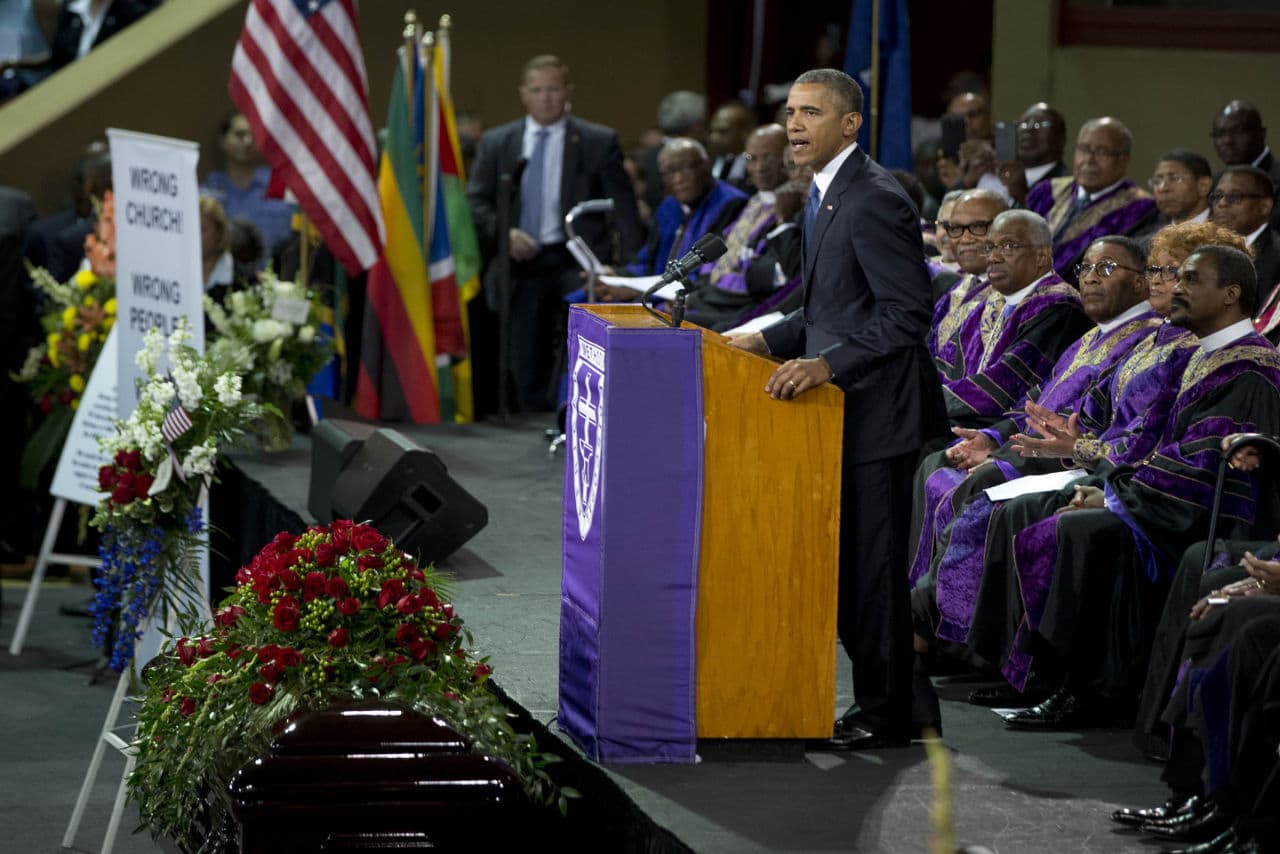Advertisement
Politics, Tragedy And Religion In The Public Sphere
ResumeWith guest host Michel Martin.
How should we talk about faith and God in these uncertain times? We put that tough question—and more---to a roundtable of religious thinkers.

For millions of Americans faith is fundamental; the freedom to worship and to worship as they choose is as important as any other right. Yet increasingly many Americans are choosing not to worship at all, and some of these Americans see religious expression, especially in the public arena, as distasteful, even oppressive. In the wake of the Charleston church shootings and the Supreme Court decision on same sex marriage, expressions of faith are in the forefront, are they causing Americans to rethink their beliefs or just reinforcing them. This hour On Point: faith revisited.
-- Michel Martin
Guests
Rev. Delman Coates, senior pastor of the Mt. Ennon Baptist Church in Clinton, MD. (@iamdelmancoates)
Beth Felker Jones, associate professor of theology at Wheaton College. Author of "Practicing Christian Doctrine." (@bethfelkerjones)
Rev. Josh Pawelek, parish minister at Unitarian-Universalist Society East in Manchester, CT. (@revjoshpawelek)
Philip Rucker, national political reporter for the Washington Post. (@philiprucker)
From The Reading List
The Daily Beast: In Charleston, We Saw Christianity at its Best — "Which is what made the remarks of the Charleston tragedy survivors so inspiring. When various family members, one after the other, said that they forgave the perpetrator, they embodied Christianity at its best, without an iota of hypocrisy to be found. For so long people have seen high-profile Christians talk about love in one breath while making incredibly intolerant remarks about others—poor people, gay people, people of other religions—in the next breath. The incredible humanity the survivors showed gave us all something to aspire to, and it came from their deep-rooted faith."
Pew Research Center: America’s Changing Religious Landscape -- "The United States remains home to more Christians than any other country in the world, and a large majority of Americans – roughly seven-in-ten – continue to identify with some branch of the Christian faith. But the major new survey of more than 35,000 Americans by the Pew Research Center finds that the percentage of adults (ages 18 and older) who describe themselves as Christians has dropped by nearly eight percentage points in just seven years, from 78.4% in an equally massive Pew Research survey in 2007 to 70.6% in 2014."
Washington Post: In a fast-changing culture, can the GOP get in step with modern America? -- "Across the cultural landscape, the national consensus is evolving rapidly, epitomized by this year’s convulsions of celebrity, social issues and politics — including the acceptance of Caitlyn Jenner’s gender identity, Pope Francis’s climate-change decree and the widespread shunning of the Confederate flag."
This program aired on July 6, 2015.